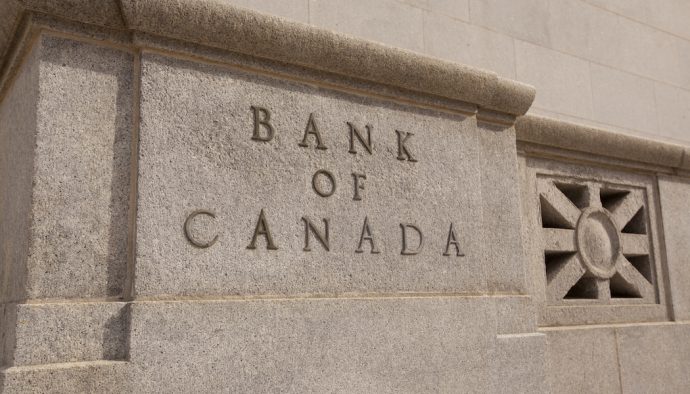The Bank of Canada’s latest interest rate announcement has been trending since its last announcement six weeks ago – and for good reason. The big banks often follow the Bank of Canada’s lead when it comes to setting their interest rates for mortgages, home equity lines of credit and other loans. While the Bank didn’t hike its rate this time around, you can be sure that it will sooner than later. After all, what goes down must come up… or something to that effect.
So, why should you care about the Bank’s next move?
A little background
The slumping oil sector prompted the Bank to drop its key lending rate twice in 2015, in an effort to boost the sagging economy. It worked. Following better-than-expected economic performance this year, the Bank followed up with an interest rate hike for the first time in almost seven years – the first in July 2017, and a second in September.
Rate hikes come in threes?
If the economy continues to grow at 2017’s healthy pace, the Bank will certainly raise its interest rate again. Interest rates have a direct correlation to economic performance. However, there have been rumours that, depending on how the real estate market performs this fall, the bank may hold off on further hikes until 2018.
It’s tough to pinpoint the effects of the past two rate hikes on the GTA housing market, because they happened in conjunction with the fallout of Ontario’s Fair Housing Plan. The rest of the country has shown resilience to past rate hikes, so if they rise another quarter point I don’t see it having much impact. Even with rates rising 0.75 per cent over this year, Canadians would still be in very affordable territory with ample buying power.
What should you do?
As a prospective homebuyer, my advice is to get pre-approved for a mortgage with a 120-day rate hold. If and when interest rates do rise, your rate won’t be affected.
As a home owner, if you have a variable-rate mortgage, consider locking in your interest rate now. It will cost you more initially, because a locked-in rate is always higher than a variable one, but you’ll be on the winning end when rates start to climb. Remember, always seek the advice of a mortgage professional if you are thinking of a locked-in versus variable rate.
Stay tuned for the Bank’s next announcement on December 6. In the meantime, remember that a home is a good long-term investment. No other investment vehicle out there allows you to buy something, use it, and still gain appreciation value. Other than a blip in the early ’90s, Toronto has seen price appreciation since the mid-1960s. It’s really a no-brainer – buy what you can afford, stick to your budget, and don’t worry too much about short-term doom and gloom.
Is the GTA in a housing bubble? No. The market fundamentals are too strong, with limited inventory, a great local economy, and our GDP hovering at a high. The GTA’s population is expected to grow by almost three million people by 2045. All of these factors will contribute to a healthy real estate market for years to come, despite rate changes by the BoC.
Disclaimer: Original post from blog.remax.ca



